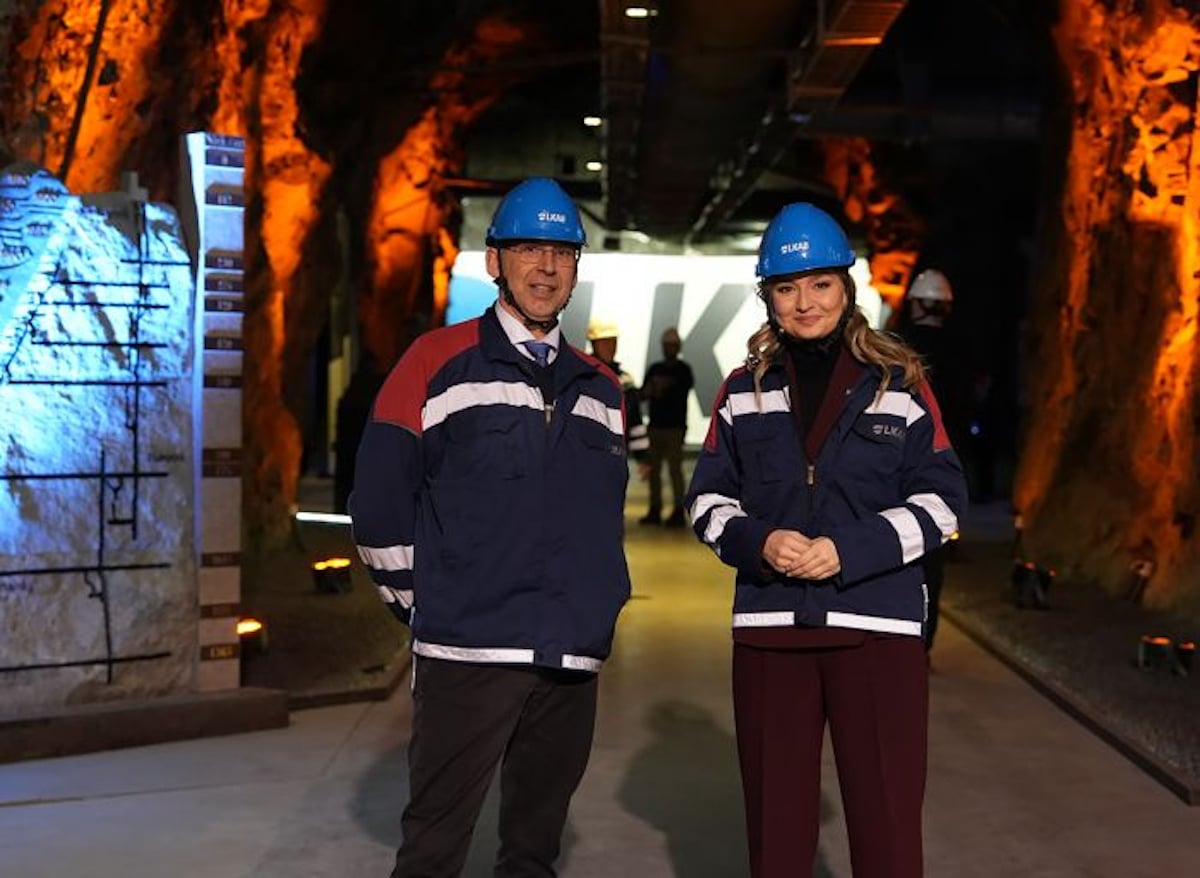Products You May Like
President and Group CEO at LKAB Jan Moström and Minister of Energy and Industry Ebba Busch. Wesley Overklift / LKAB
 Why you can trust us
Why you can trust us
Founded in 2005 as an Ohio-based environmental newspaper, EcoWatch is a digital platform dedicated to publishing quality, science-based content on environmental issues, causes, and solutions.
One of the main challenges of the clean energy transition is sourcing the rare earth minerals needed to build things like electric vehicles (EVs) or wind turbines.
That’s why Swedish mining company LKAB was excited to announce Thursday that it had found more than one million tonnes of rare earth oxides near the Arctic Swedish city of Kiruna, the largest deposit of its kind anywhere in Europe.
“This is good news, not only for LKAB, the region and the Swedish people, but also for Europe and the climate,” LKAB President and Group CEO Jan Moström said in a statement. “This is the largest known deposit of rare earth elements in our part of the world, and it could become a significant building block for producing the critical raw materials that are absolutely crucial to enable the green transition. We face a supply problem. Without mines, there can be no electric vehicles.”
More From EcoWatch
Rare earths are a group of 17 chemical elements that include the lanthanides, scandium and yttrium, The Washington Post explained. They are used in everything from televisions to mobile phones to military defense systems and have gained increasing importance in the global response to the climate crisis because they are part of the magnets used in EVs and wind turbines. Demand for these elements is projected to quintuple by 2030, BBC News noted.
“Lithum and rare earths will soon be more important than oil and gas,” European Union internal market commissioner Thierry Breton said last year, as BBC reported.
While rare earth elements aren’t actually as rare as the name might suggest, accessing them does pose several difficulties, The Washington Post pointed out. For one thing, the mining and refining process contains health and environmental risks because the ores can be found together with radioactive elements like uranium. For another, the location of global deposits presents geopolitical challenges, especially for Europe.
Currently, China is the country with the largest reserve of the metals as well as their No. 1 exporter. The EU does not currently mine any of its own rare earth minerals and relies on China for almost 98 percent of them, according to POLITICO. The EU plans to become carbon neutral by 2050, but Breton warned in a September blog post that this goal was in jeopardy without steady and consistent access to rare earth minerals and other important raw materials. Sweden hopes that LKAB’s find will help.
“Electrification, the EU’s self-sufficiency and independence from Russia and China will begin in the mine,” Swedish Minister for Energy, Business and Industry Ebba Busch said in the announcement. “We need to strengthen industrial value chains in Europe and create real opportunities for the electrification of our societies.”
However, there is still much that needs to happen before mining can actually begin in Sweden. LKAB said that it would apply to mine the deposit this year, but that it would likely take at least 10 to 15 years to begin mining based on the company’s experience with the permitting process.
“We must change the permit processes to ensure increased mining of this type of raw material in Europe,” Moström argued in the statement. “Access is today a crucial risk factor for both the competitiveness of European industry and the climate transition.”
Subscribe to get exclusive updates in our daily newsletter!
By signing up, you agree to the Terms of Use and Privacy Policy & to receive electronic communications from EcoWatch Media Group, which may include marketing promotions, advertisements and sponsored content.
